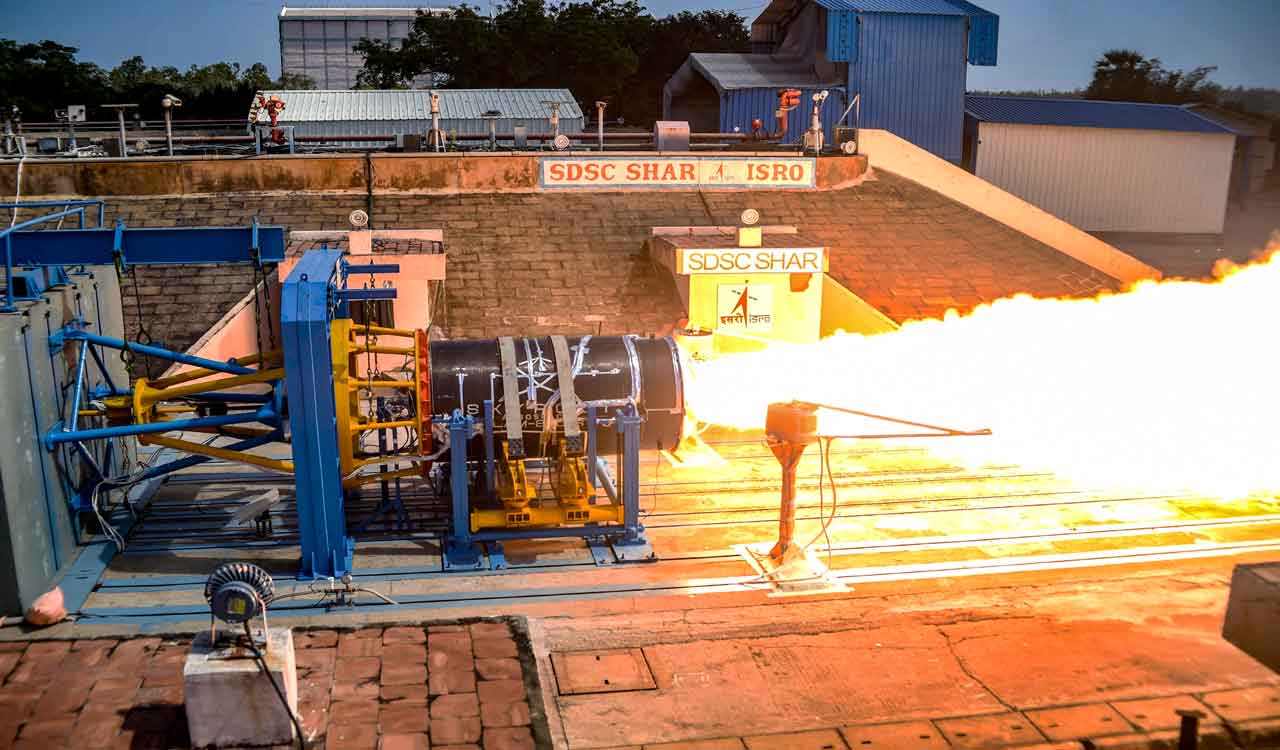
Kalam-250 features a high-strength carbon composite rocket motor using solid fuel and an Ethylene-Propylene-Diene terpolymers (EPDM) thermal protection system (TPS).
Published Date - 28 March 2024, 01:33 PM
Hyderabad: Skyroot Aerospace, the leading space technology company based in Hyderabad, has successfully test-fired Stage-2 of the Vikram-1 space launch vehicle, known as Kalam-250, at ISRO’s propulsion testbed in Sriharikota on Wednesday. This test marks a significant step towards India’s first private orbital rocket launch, following Skyroot’s suborbital space launch of the Vikram-S in November 2022.
The 85-second test recorded a peak sea-level thrust of 186 kilonewtons (kN), expected to translate to around 235kN in flight. Kalam-250 features a high-strength carbon composite rocket motor using solid fuel and an Ethylene-Propylene-Diene terpolymers (EPDM) thermal protection system (TPS). It includes a carbon ablative flex nozzle and electro-mechanical actuators for thrust vector control, crucial for achieving the desired trajectory during the rocket’s ascent.
Skyroot Stage 2 Static Test 4
The test also involved the Vikram Sarabhai Space Centre (VSSC), contributing its proprietary head-mounted safe arm (HMSA) for safe rocket stage operation. The solid propellant for Kalam-250 was processed by Solar Industries at their Nagpur facility. Skyroot had previously successfully tested Kalam-100, the third stage of Vikram-1, in June 2021.
Stage-2 plays a critical role in propelling the launch vehicle from the atmospheric phase to the vacuum of outer space. Pawan Chandana, Co-Founder and CEO of Skyroot, emphasized the significance of this milestone for the Indian space industry, highlighting it as the largest propulsion system designed and manufactured by the Indian private sector and the first carbon-composite-built motor tested at ISRO.
“This is a significant milestone for the Indian space industry, marking the successful test of the largest propulsion system ever designed and manufactured by the Indian private sector so far, and the first carbon-composite-built motor tested at ISRO. All test parameters are within expected bounds, and this achievement takes us another step closer to the upcoming orbital launch of the Vikram-1 rocket,” he stated.
Naga Bharath Daka, Co-Founder and COO of Skyroot, noted the validation of the flex nozzle control system during firing as a crucial achievement in their journey towards the maiden orbital launch of Vikram-1 in 2024. Skyroot’s progress is attributed to the dedication of their team and the support from IN-SPACe and ISRO, with a focus on crossing further milestones in the coming months.





Leave a Reply